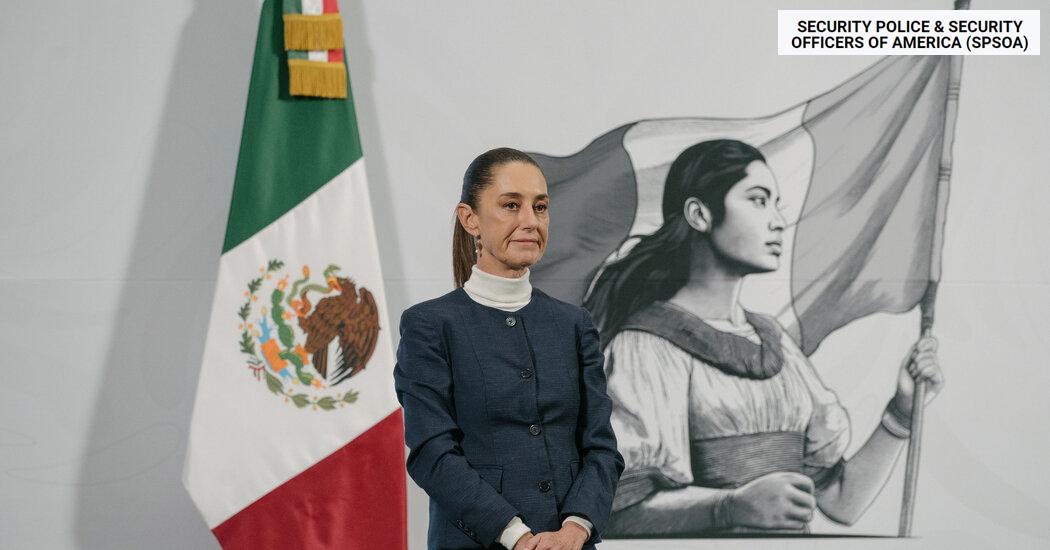In a move that reflects ongoing discussions about trade and economic relationships, the United States and Mexico have agreed to delay the imposition of tariffs that were set to take effect soon. This deal comes after intense negotiations aimed at easing the strain between the two neighboring countries, particularly amid rising concerns about economic impacts and the flow of goods across the border. President Trump and Mexican officials reached this agreement following critical talks that highlighted both nations’ interests in maintaining a cooperative trade atmosphere.
Why Are Tariffs Important?
Tariffs are taxes that countries put on goods coming in from other countries. They can influence prices and trade relationships. For instance, when a tariff is imposed, it can make items more expensive for consumers, which might lead to fewer people buying those products. In this case, the tariffs that were delayed could have affected various industries that rely on goods shipped from Mexico to the U.S., like car manufacturing and electronics.
Details of the Agreement
- One-Month Delay: The latest arrangement allows for a one-month pause on the tariffs.
- Security Measures: As part of the deal, Mexico has committed to sending 10,000 National Guard troops to its northern border. This move is intended to enhance security and reduce illegal crossings.
- Deepening Concerns: While this agreement buys time, concerns remain about the long-term economic implications for both countries.
What Led to This Decision?
The decision to delay tariffs stemmed from significant pressure from various sectors in the economy. U.S. officials recognized that these tariffs could drastically increase costs for American families. In fact, some estimates suggested households could see an increase in expenses of over $1,200 due to these import taxes. This potential burden prompted lawmakers to advocate for a more collaborative approach.
The Economic Impact
The delay in tariffs is not just a victory for diplomatic relations. It also signifies a relief for consumers and businesses alike who have been anxious about rising costs. Experts argue that maintaining open trade channels is vital for economic growth, especially as both nations deal with the fallout from the global pandemic and recent supply chain disruptions.
Broader Trade Concerns
While this agreement has brought temporary relief, U.S. trade relations are still under scrutiny. Tensions with other countries, especially Canada and China, persist as tariffs on their imports remain unresolved. Observers are keenly watching how these situations unfold, as they could reshape economic interactions across North America.
Political Reactions
Responses from political leaders have been mixed. Some Democrats in the Senate have pointed to the economic toll of Trump’s tariff policies, highlighting how such measures disproportionately affect lower-income families. Others argue that these tariffs are necessary for protecting U.S. jobs and industries from foreign competition. As discussions continue, it’s clear that the political landscape surrounding trade policy remains contentious.
Final Thoughts
This delay in tariffs serves as a reminder of the complex relationship between trade and politics. As both nations aim to fortify their economic ties, the actions taken today could shape the routes of future trade negotiations. Stakeholders on both sides will need to remain alert as the next round of discussions approaches. Keeping an eye on how the situation evolves will be crucial for understanding the implications for consumers, businesses, and governments alike.
